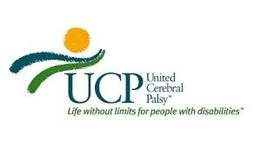
Whatever your association with the word, research means many different things to many different people. It can sometimes be difficult to encourage people to engage as active participants in healthcare research, particularly if their associations with the concepts are less than positive.
For many people who have a disability, the idea of research has a complicated history that may do little to spark the desire to become involved with the research process. Traditionally, research involving people with disabilities revolved around controversial subjects such as finding a cure, or treatments that solely focused on an individual’s primary disability or condition with little regard for the person as a whole. It comes as no surprise then, that engaging people with disabilities in health research can be a difficult task.
This leads to some complex questions, including, how do we engage people with disabilities in health research in a way that respects both individuality and diversity, but also presents an opportunity to view people holistically, rather than simply seeing their primary diagnosis? How do you redefine research in a way that feels empowering and not limiting? How do we engage patients in research around health issues that considers the true needs of an often-overlooked community, rather than relying on outdated perceptions and stereotypes?
The answers to these questions can be found in patient-centered outcomes research (PCOR), a relatively new way of conducting research that sees people and communities involved in the research process as active participants rather than passive subjects. Recently, United Cerebral Palsy hosted a “Speak for Yourself” program in St. Louis, where we were able to discuss some of the barriers that still exist for engaging people with disabilities in research around health-related issues, as well as the importance of this engagement.
Because of the sometimes negative history of health-related research in the disability community, it is important to understand how PCOR operates on a model that turns old models of research upside. At the convening, we discussed with a committed group of allies and people with disabilities, the power of health-related research that sees an individual as a whole, rather than simply as a product of their condition.
The convening was a great opportunity to talk about the real-life consequences that come from a lack of diversity in health-related research, and brainstorm ways to make research more approachable to people who are wary of having their identities medicalized.
We reflected on the fact that PCOR is revolutionary because it embodies the idea of “nothing about us without us,” and embraces the values of the disability rights movement by striving to see people as individuals as opposed to medical diagnoses. We acknowledged the challenge that comes with expressing this redefinition of research in a way that feels comfortable and relatable, but also resolved the importance of a focused effort to do so.
